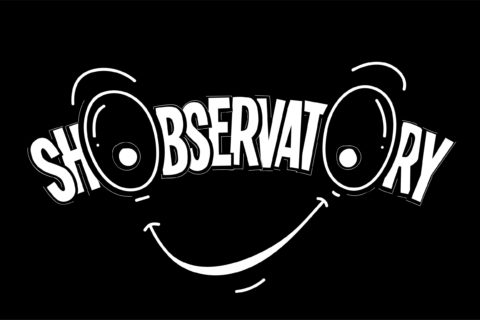Political correctness, subject of countless conversations and media stories over the last few years but mysteriously ignored by the research industry. Until now.
It seems an even more remarkable omission when you consider our industry’s recent fixation with authenticity. Surely, a force that affects what views and feelings people are willing to voice is of fundamental importance to researchers?
We thought so and ESOMAR agreed, offering us platform at Fusion 2020 conference in Madrid.
We had some questions in mind:
- Does political correctness impede authenticity in qualitative studies?
- If so, how can this be managed by researchers?
There was also a more personal dimension:
- How do qualitative researchers (quite ‘pc’ as a tribe) deal with controversial material from respondents when exposed to it?
The findings we shared in Madrid, and summarize here, come partly from experience of many years conducting qualitative research on contentious political issues. However, we supplemented this with a small-scale self-funded study that used the subject of immigration as a test case to explore the influence of political correctness but also explored how a working class audience felt about the political correctness itself.
Here is what we found.
Political correctness can be barrier in predictable and unpredictable ways
Political correctness evokes a number of different feelings:
1. Shame and hurt
People feel it is not just what they say, but who they are that is being criticised. They feel that their values and opinions are seen as evidence of old age, or low social class, or even low intelligence. They feel looked down upon by their ‘social betters’.
2. Confusion
There is a sense that the rules of political correctness are in constant flux, creating some genuine confusion – it sometimes feels as though the system is designed to “catch them out”, rather than about “doing the right thing”.
3. Anxiety
Political correctness has serious and sometimes threatening aspects. In the workplace, breach can lead to serious consequences.
There was also a sinister facelessness to the phenomenon – who makes the decisions as to what is acceptable – who are they and what is the extent of their power?
4. Rebelliousness
For some political correctness is Orwellian thought control and therefore breaking the rules consciously and, sometimes, grandiosely could be seen as a legitimate act of political protest.
The implications for research: Two types of ‘inauthenticity’
There is a sense of participants holding back and self-censoring – a nervousness about breaching rules that are fluid, unclear and may incur unknown consequences. However, there is also another risk of inauthenticity of another kind – that people will exaggerate their feelings in protest against political correctness.
How do qualitative researchers manage these barriers?
In our experience, the group discussion is the best way to explore controversial subjects as it allows access to, and exploration of, both social norms and personal beliefs and getting a sense of where the two coincide or conflict.
Based on our study and experience of conducting politically sensitive groups, we have been able to identify a sequence of stages that the most fruitful group discussions on contentious subjects go through. It is not a precise process, but a general direction of travel.
The three stages we identified are:
Stage 1: Suppression/caution
In these early minutes of the discussion, people feel uneasy and show great caution. For example, when we announced the subject of the group was immigration, there was hesitation and awkward silence, uncomfortable body language and guarded comments.
If progress to the next stage does not naturally occur, there are several things the researcher can do:
- Reassure them about their fellow participants: e.g. “You all share broadly similar views on immigration”
- Reassure them about the researcher: This can be done by adopting an interested and non-judgemental person – more on this later
- Projective questions can allow participants to voice views without being responsible for them e.g. “What does the typical person feel about immigration?”
Stage 2: Catharsis
The sudden realisation that they can speak freely can be cathartic, and honest responses can quickly inflate to hyperbole, posture and sometimes ‘offensive’ material. The content shared in this stage is often revealing but arguably is less than authentic. Once again, progress to the final stage may happen naturally or require moderator action:
- A call to fairness e.g. “Come on guys there are 2 sides to this aren’t there?”
- Projective techniques can play a role. E.g. “Imagine a group of immigrants listening in to this conversation – how might they feel and respond?”
- It may be worth reverting to some individual work or tasks that are more reflective in nature.
- Taking a “comfort break” can also help calm things down.
Stage 3: Reflection
There does seem to be a final, more reflective and constructive moment when content is to be found. It is arguably the most authentic content – or it is simply a more compromised viewpoint?
The importance of the “right kind” of moderation
We would argue that interpreting the complexity of political correctness is best served by the presence of a face-to-face moderator given the considerable challenges:
- The complex emotions political correctness evokes
- The combination of social norms and personal opinion
- The need to help navigate through the different group stages to more ‘authentic’ content;
- The constant requirement for reassurance and encouragement in the face of ambivalent threat, changing rules and unknown sanctions.
Being physically present is vital but not enough, they need to be emotionally ‘present’ and mindful of challenges political correctness creates. The central task is ensuring participants feel comfortable enough and “safe” enough to express their views. We believe Carl Rogers and the humanistic school provides the best model for the moderator when dealing with politically sensitive subjects.
Rogerian Unconditional positive regard simply means an acceptance of the client for who they are and the display of support and care whatever they are feeling or expressing. This support needs to be demonstrated by the moderator in order to be effective, through body language, demeanour and active listening. It is about showing a strong and genuine interest and a willingness, even passion, to ‘hear’ and understand the person.
Alternative routes to authenticity
Depth interviews moderated sensitively allow a greater relationship to be formed and a trust established that removes some of the issues political correctness can create.
However, this methodology is weaker on establishing social norms and sacrifices the sense of release generated by the meeting of like-minds. We therefore tend to favour the traditional group for politically contentious topics – or, ideally, a combination of the two.
Online options are prone to some of the dynamics of the traditional group discussion but without the compensatory presence of the live human moderator. We have found that political debates online are more likely to get ‘stuck’ in catharsis mode, or even lapse into personal abuse. People are often in social media mode when online and we find face-to-face a much more sensitive tool.
The ethical challenges: How do researchers handle the controversial content when they access it?
Thus far, the discussion has been about the challenge of getting beyond politically correct responses, but now it is time to discuss the challenge that success can bring. How do researchers handle “offensive” content? The risk is, of course, greatest for researchers tackling sensitive subjects, but it is not common to hear challenging content, even when discussing the most anodyne of subjects.
Given that researchers tend to be part of the “liberal bubble” (although not alas the Liberal elite), many researchers may have thin skins and find themselves offended by ‘populist’ statements. How should we deal with these incidents? How can we balance out our need to “hear” and respect our respondents with our own belief systems? Let me use an example from my own personal experience.
During a discussion on political correctness a respondent told the group how she dealt with the “disapproval” she sometimes experienced. She explained how she reached for her “secret weapon” as a protest against censorship, and at this point in the group she reached into her handbag and revealed a small “golly” doll.
How should I have responded? No code of conduct covers this sort of detail and there is no ethical bible for qualitative researchers. I believe we should all develop our own ethical code. My main influence remains Carl Roger. Rogers did not speak on this issue – of coping with controversial views – but I have done my best to extrapolate from his key principles and my understanding of his “spirit”.
We are not responsible for what respondents say in groups, nor do I believe we have any duty to “call out” offensive material. ‘Call out culture’ is a new social norm that researchers may feel influenced by – it is their ethical duty to resist this when they are moderating. They need to remember the special context of the research relationship. The researcher is in a position of authority and status and this brings a duty of care. Any criticism delivered from that position can wound. The participant is sharing their views at the researcher’s request; the researcher is, therefore, duty bound not to disparage their invited opinion.
Summing up
Political correctness is a genuine challenge, especially but not exclusively, in projects with a politically contentious theme. Researchers need to manage this to ensure that the richest findings emerge. I have suggested some methodological fixes above but self-awareness and reflexivity are at least as important.



1 comment
Good piece. Reflecting on the three stages shapes how reports would sound with emphasis on relevant, constructive but also inclusive content. This would certainly capture the moments of influence in decition making or action which may occur in all the 3 stages.